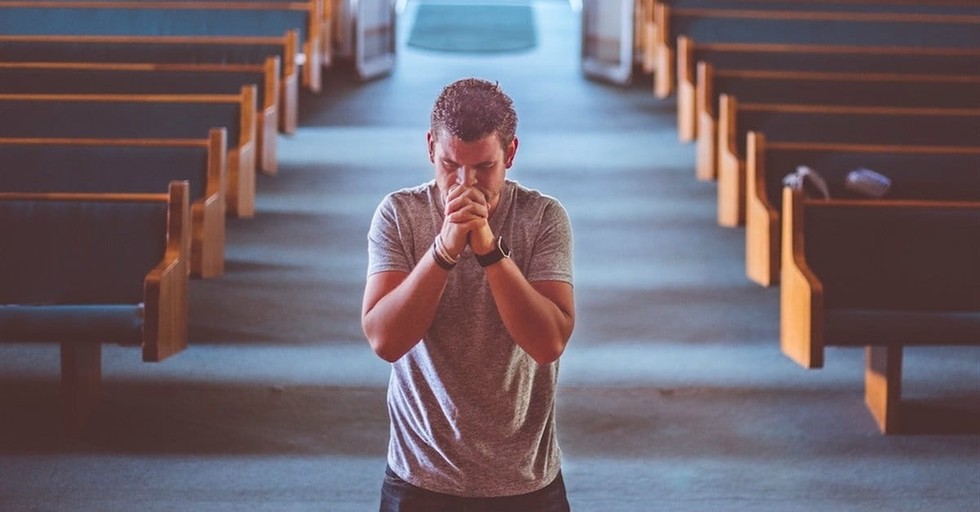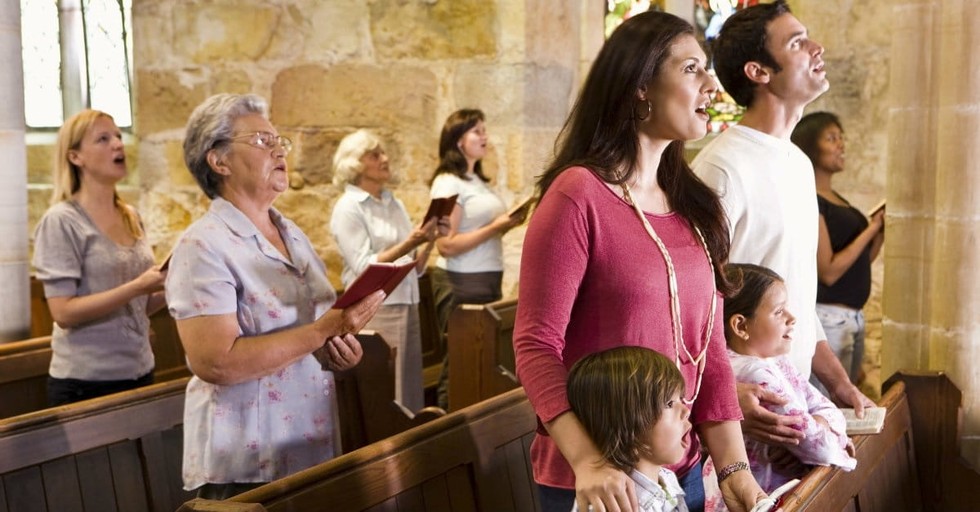15 Myths People Believe about Their Pastor
-
![]()
- Updated Feb 25, 2021

Whenever you meet someone new, typically the conversation turns to vocation. "So what do you do for a living?" Teachers teach, nurses nurse, lawyers argue, salesmen sell. These vocations we understand. But most people aren’t really sure what pastors do or who pastors are. Pastors seem to have a lot of unaccounted time on their hands.
In a perfect world, our pastors would pray, evangelize, counsel, teach, comfort, and lead us with integrity. Their sermons would be spell-binding, their humor contagious, their personal lives, flawless. Pastors would basically be spiritual super-heroes.
But we know too many stories of church splits, cover-ups, and sexual addictions. Pastors almost always disappoint us.
Perhaps our expectations run too high? But shouldn’t we expect righteousness in a spiritual leader? And yet, most parishioners aren’t criticizing character; they’re picking apart sermons and cancelled programs and personality. The church holds a standard of perfection, even while forgetting that most people didn’t even like how Jesus did ministry. He had critics, antagonists, and confused listeners in every audience. The church forgets that, unlike Jesus, pastors are regular people who can’t see into the future and have to pay their bills like everyone else.
Let’s scrape away some disillusionment and shine a light on 15 common myths that people have about their pastors. Perhaps we can all adjust our expectations and maybe even support our pastors a little bit better as they seek to follow God and lead us in spiritual growth.
Photo credit: Unsplash.com
-
![1. They only work on Sundays.]()
1. They only work on Sundays.
Slide 1 of 15While a pastor’s workload varies from denomination to denomination, a LifeWay Research study found 65 percent of evangelical pastors worked over 55 hours per week and eight percent worked more than 70 hours per week. Sermon prep, meetings, administration, counseling, church activities, and personal study take up the majority of a pastor’s workweek. Most pastors take a day off during the week to make up for the weekend’s work, yet 40 percent report working seven days a week. Doesn’t sound too healthy, does it? (2 Timothy 4:5)
Photo credit: ©Thinkstock/Shannon Fagan
-
![2. They are out of touch with the real world.]()
2. They are out of touch with the real world.
Slide 2 of 15Not true anymore (if it ever was). Many churches employ one or more bi-vocational pastors because they cannot generate the income to hire pastors full time. These ministers carry the pressure of working a secular job as well as doing ministry. Often, large churches employ ex-businessmen to carry on the administrative pastoral duties in their organizations so that credentialed pastors can focus on teaching and counseling. Pastors who want to stay connected to their communities often also participate in civic organizations or volunteerism in addition to their many church duties. And they live in regular neighborhoods, too. The parsonage era is mostly over. (Matthew 5:13-16)
Photo credit: ©Thinkstock/Arrangements-Photography
-
![3. They don't struggle with sin.]()
3. They don't struggle with sin.
Slide 3 of 15Pastors face temptations like any other Christian; the additional difficulty for ministers is the pressure of being a spiritual example and lacking trustworthy accountability partners. In one poll, 50 percent of pastors reported using pornography as a tension reliever, and 38 percent admitted having inappropriate sexual relationships with parishioners. (1 Timothy 1:18-19)
Photo credit: ©Thinkstock/Nastco
-
![4. They study the Bible easily.]()
4. They study the Bible easily.
Slide 4 of 15Studying, interpreting, and preaching God’s Word is a daunting task; it requires time for prayer, research, and receptivity to the Holy Spirit’s leading. Preparing a sermon follows a demanding week of conflict resolution and administration—not exactly creative-inducing activities. A pastor’s study and prayer time ranges from 30-60 percent of a pastor’s week. That doesn’t sound easy. (2 Timothy 2:15, 1 Timothy 4:13)
Photo credit: ©Thinkstock/pamela_d_mcadams
-
![5. They appreciate regular critique, criticism, and comparison to other preachers and other churches.]()
5. They appreciate regular critique, criticism, and comparison to other preachers and other churches.
Slide 5 of 15Pastors carry the closeted weight of their congregants’ lives. Pastors hurt for their people; they lose sleep, personal time, and energy praying and counseling their parishioners at all hours of the day and night. If you have a concern about the church, don’t corner your pastor on Sunday. Set an appointment during the week; approach your pastor with respect, asking for his perspective on an issue before you launch into advice about how he should do his job. Most likely, the problem is more complex than your realize. (1 Peter 2:17, 1 Timothy 4:12-16)
Photo credit: ©Thinkstock/pixelheadphoto
-
![6. They never feel resentful, tired, angry, or discouraged.]()
6. They never feel resentful, tired, angry, or discouraged.
Slide 6 of 15In a Schaffer Institute study, 70 percent of pastors regularly consider leaving the ministry, due to burnout, emotional health, or moral failure. In fact, 91 percent percent of polled pastors have experienced burnout. Eighty percent of pastors will not remain in the ministry for more than 10 years, and only 10 percent will enter retirement from a pastoral position. (1 Thessalonians 5:12)
Photo credit: ©Thinkstock/Marjan_Apostolovic
-
![7. They have lots of friends.]()
7. They have lots of friends.
Slide 7 of 15While many parishioners act like they are personal friends with their pastor, most cannot separate their pastor’s role from his presence as an individual. This creates an intimacy barrier, making a pastor feel “on duty” when in the company of parishioners. While pastors feel the need to be everyone’s friend, most experience the loneliness of having few friends who know them personally apart from their role as pastor. Seventy percent of pastors report that they do not have any intimate friends. (1 Thessalonians 5:11)
Photo credit: ©Thinkstock/digitalskillet
-
![8. They don't need counseling or a safe place to vent.]()
8. They don't need counseling or a safe place to vent.
Slide 8 of 15Half of all pastors do not have accountability partners or counselors with whom to vent and share burdens. Although many people offer and desire to be their pastor’s confidante, experience has taught pastors (and their spouses) that they usually can’t trust the offers. Every pastor should have a counselor for himself, and the church should pay for it because it benefits the whole body when a pastor is emotionally healthy. (2 Timothy 4:9-17)
Photo credit: ©Thinkstock/shironosov
-
![9. They never feel unfriendly, angry, or bitter.]()
9. They never feel unfriendly, angry, or bitter.
Slide 9 of 15Forty percent of pastors report having at least one serious conflict with a parishioner every month. Often, confrontation produces gossip, character attacks, and coups among angry parishioners toward each other and toward their pastor. Eighty-five percent of pastors site their staff and deacons as the source for their highest stress and opposition in ministry. As a pastor seeks to love and lead people, the constant stress from personal conflict can leave them struggling with anger and bitterness. (Titus 2:6, 14)
Photo credit: ©Thinkstock/ALLVISIONN
-
![10. They should be satisfied with a low salary because having money produces greed.]()
10. They should be satisfied with a low salary because having money produces greed.
Slide 10 of 15Actually, money is not bad—the “love of money is the root of all kinds of evil.” Pastors who have multiple undergraduate and graduate degrees could earn 2 to 5 times their ministry salary in the marketplace. Seventy percent of pastors polled feel they “are grossly underpaid” (80 percent of their spouses believe the same). Underpayment of pastors is not a biblical solution for preventing greed; however, underpayment could be a result of parishioners’ greed. Money is control; in many churches, the people with the most money have the most influence. Perhaps this is one reason for keeping pastors underpaid? (1 Timothy 5:18, 1 Timothy 6:10)
Photo credit: ©Thinkstock/DesignPics
-
![11. They easily bear and hold the devastating secrets of hundreds or thousands of people.]()
11. They easily bear and hold the devastating secrets of hundreds or thousands of people.
Slide 11 of 15The truth is, many parishioners who come to their pastor for help, reject their pastor’s wisdom and advice, don’t repent of their sin, or blame the church for their problems. Other people’s problems take a heavy toll on pastors’ health; 70 percent of pastors call themselves “extremely stressed.” Seventy-five percent say they regularly fight depression. Nearly two-thirds of pastors exercise regularly to help alleviate stress, but only 15 percent have ever taken a sabbatical. (2 Timothy 4:2)
Photo credit: Pexels.com
-
![12. They have perfect, fairytale marriages.]()
12. They have perfect, fairytale marriages.
Slide 12 of 15Half of pastors’ marriages will end in divorce; 40 percent of marriages will experience an affair during ministry years, and over 75 percent of pastors say their marriages are in trouble. Eighty percent of pastors’ wives wish their husbands had chosen a different profession; 94 percent feel the pressure of ministry life on a regular basis. Pastoral marriages struggle to succeed, not from lack of knowing how, but from the enormous pressure added to normal married life. Amidst the pressure and the lack of time and privacy, pastors must model a godly marriage to their congregations. (1 Timothy 3:11, Ephesians 5:22-33)
Photo credit: ©Thinkstock/nandyphotos
-
![13. Their children should be better than other people's kids and be the spiritual leaders in youth group.]()
13. Their children should be better than other people's kids and be the spiritual leaders in youth group.
Slide 13 of 15Actually, Paul explains that the pastor is responsible to be godly and influential with his/her children, but there are no demands placed upon the children other than the instruction to obey their parents, which applies to all kids. Unfortunately, when pastors’ kids navigate the dangerous waters of growing up, they have to do it in a fishbowl. Sadly, 94 percent of pastors feel the pressure of needing a “perfect family.” (1 Timothy 3:4, Titus 1:6, Ephesians 6:1)
Photo credit: Unsplash.com
-
![14. They don't need significant skills (after all, they just talk and pray).]()
14. They don't need significant skills (after all, they just talk and pray).
Slide 14 of 15Pastors must manage a budget and ministry based on voluntary donations, confront people’s sin in a grace-filled way, cast and implement vision, counsel people through traumatic events, study and apply Scripture to culture without surrendering mission, challenge and motivate audiences, and lead and mentor an ever-developing staff, just to name a few things. No wonder 90 percent of pastors feel ill-prepared for the demands and skills needed to run a church. Only 5 percent feel they have the gift of leadership, and only 10 percent of the world’s pastors have benefitted from a Bible college or seminary education. (1 Timothy 3:2-7, Titus 1:6-9)
Photo credit: ©Thinkstock/mallmo
-
![15. They are more responsible to reach the lost than other people.]()
15. They are more responsible to reach the lost than other people.
Slide 15 of 15Each believer is responsible before God to share the gospel and use his/her spiritual gifts in the church. We all have different spiritual gifts, but we are all commanded to share the good news. (Matthew 28:19-20, Romans 12:3-8)
Sue Schlesman is a Christian writer, teacher, and speaker. Her blogs, Bible studies, fiction, and non-fiction reach a wide audience. You can find her philosophizing about life, education, family, and Jesus at www.susanwalleyschlesman.com andwww.7prayersthatwork.com or email her at sueschlesman@gmail.com.
Photo credit: ©Thinkstock/Jupiterimages




 Previous
Previous













